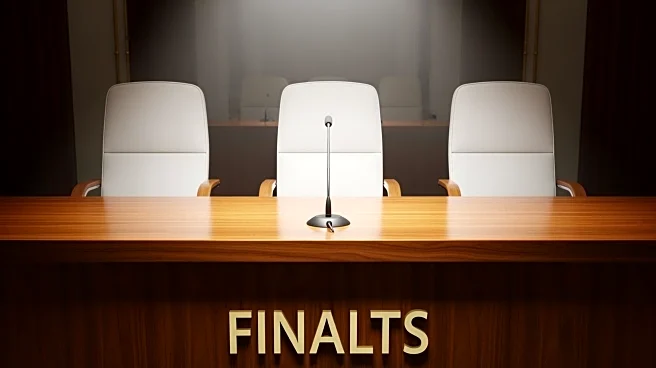What's Happening?
Treasury Secretary Scott Bessent has announced that the list of candidates to replace Federal Reserve Chair Jerome Powell has been narrowed down to five individuals. The finalists include current Fed Governors
Christopher Waller and Michelle Bowman, National Economic Council Director Kevin Hassett, former Fed Governor Kevin Warsh, and BlackRock executive Rick Rieder. President Donald Trump has indicated that a decision on the new Fed Chair is expected by the end of the year. This announcement comes as the Federal Open Market Committee is set to meet this week, with an anticipated decision to lower the benchmark overnight borrowing rate by a quarter percentage point. This would follow a similar rate cut in September. Powell's term as Chair does not expire until May, but he could choose to step down or continue serving as a governor until 2028.
Why It's Important?
The selection of a new Federal Reserve Chair is a significant decision that could impact U.S. monetary policy and economic stability. The Fed Chair plays a crucial role in setting interest rates and guiding the country's economic strategy. With President Trump having already appointed three members to the seven-member board, the appointment of a new Chair could further influence the direction of the Federal Reserve's policies. This decision is particularly important as the U.S. economy faces challenges such as inflation and potential recessionary pressures. The choice of Chair could affect market confidence and the broader economic outlook, influencing everything from consumer borrowing costs to business investment decisions.
What's Next?
The next steps involve further interviews conducted by Secretary Bessent, with a final slate of candidates to be presented to President Trump after the Thanksgiving holiday. The Federal Open Market Committee's upcoming meeting will also be closely watched for its interest rate decision, which could provide insights into the Fed's future policy direction. Stakeholders, including financial markets and political leaders, will be keenly observing these developments, as the new Chair's approach to monetary policy could have far-reaching implications for the U.S. economy.










